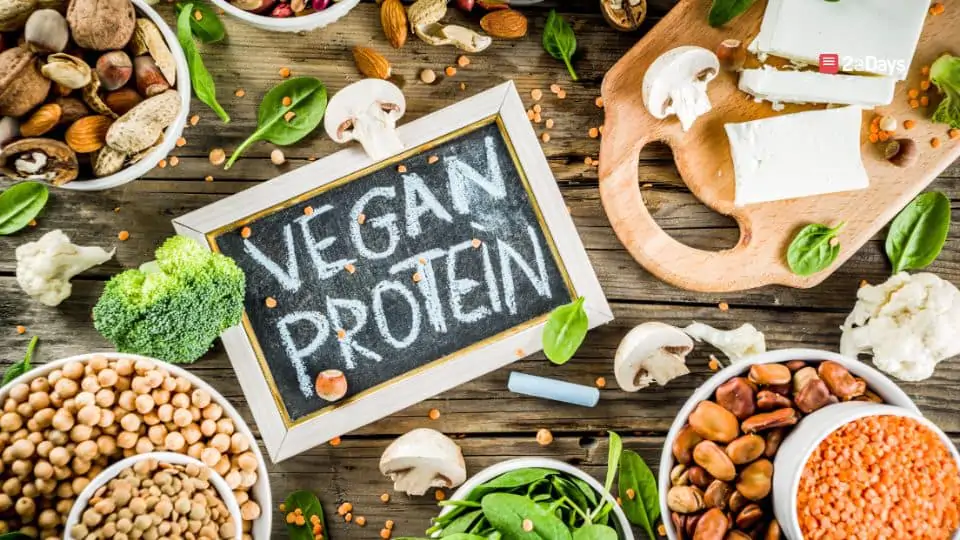Athletes often worry about meeting protein needs without animal products, but the truth is that vegan protein sources for athletes are diverse and powerful. With the right food combinations, plant-based diets provide all essential amino acids required for strength, recovery, and endurance. Options like lentils, chickpeas, quinoa, tofu, tempeh, edamame, hemp seeds, chia seeds, and plant-based protein powders supply both quality and quantity of protein. When eaten strategically, these foods support lean muscle growth and improve performance. A well-balanced vegan diet proves that plants deliver energy, recovery, and stamina for athletes in every training phase.

Why Protein Matters for Athletes
Protein is not just about muscle growth. For athletes, it fuels recovery, repairs tissues, balances hormones, and sustains energy. Plant-based protein performs these roles just as effectively when combined correctly. Many people believe vegan diets lack complete proteins, but foods like quinoa, soy, and buckwheat contain all essential amino acids. Pairing grains with legumes, like rice and beans, also forms complete proteins. Eating enough protein prevents muscle fatigue, reduces injury risk, and supports endurance. Athletes following vegan diets gain both strength and overall wellness by focusing on variety and balance in their food choices.

Top Vegan Protein Sources
1. Legumes
Lentils, chickpeas, and black beans are staples for vegan athletes. They deliver high protein along with fiber, which improves digestion and keeps energy steady. Lentil soups, hummus, or bean salads are easy to prepare and versatile. Pairing legumes with whole grains like brown rice enhances protein quality. Legumes also supply iron and magnesium, which support oxygen flow and muscle contractions during intense workouts.
Soy Products
Tofu, tempeh, and edamame are rich, complete protein sources. Tofu absorbs flavors easily, making it perfect for stir-fries and curries. Tempeh is fermented, which improves digestion and nutrient absorption. Edamame works as a simple pre- or post-workout snack. These soy-based foods supply not only protein but also calcium and iron, which are essential for bone strength and endurance.
Quinoa and Whole Grains
Unlike most grains, quinoa is a complete protein. One cup delivers about 8 grams of protein along with fiber and magnesium. Brown rice, oats, and buckwheat also help athletes meet daily needs. Grain bowls with quinoa, beans, and vegetables create balanced meals that sustain training demands. These grains are gluten-free, making them accessible to athletes with sensitivities.
Seeds and Nuts
Hemp seeds, chia seeds, flaxseeds, almonds, and walnuts are dense protein sources with healthy fats. Hemp seeds offer a complete amino acid profile, while chia and flax add omega-3s for inflammation control. Almond butter or chia pudding makes for easy snacks. Nuts and seeds also boost calorie intake for athletes with high energy needs.
Plant-Based Protein Powders
Pea, rice, and hemp protein powders help athletes meet daily requirements conveniently. Smoothies with banana, spinach, and protein powder make quick recovery meals. These powders work well post-training to rebuild muscle when whole meals aren’t available.
Tips for Maximizing Protein Absorption
Spread protein intake across meals instead of loading it all at once. Combine complementary foods, like beans with rice or hummus with whole-grain bread. Drink enough water to support digestion, and include vitamin C-rich foods like oranges to boost iron absorption from plant proteins.
Conclusion
Strong performance comes from smart food choices. The best vegan protein sources for athletes—from legumes to seeds—offer complete nutrition when eaten strategically. With variety, balance, and consistency, plant-based athletes can recover faster, build lean muscle, and train harder. Vegan protein proves that strength and endurance thrive without animal products.
